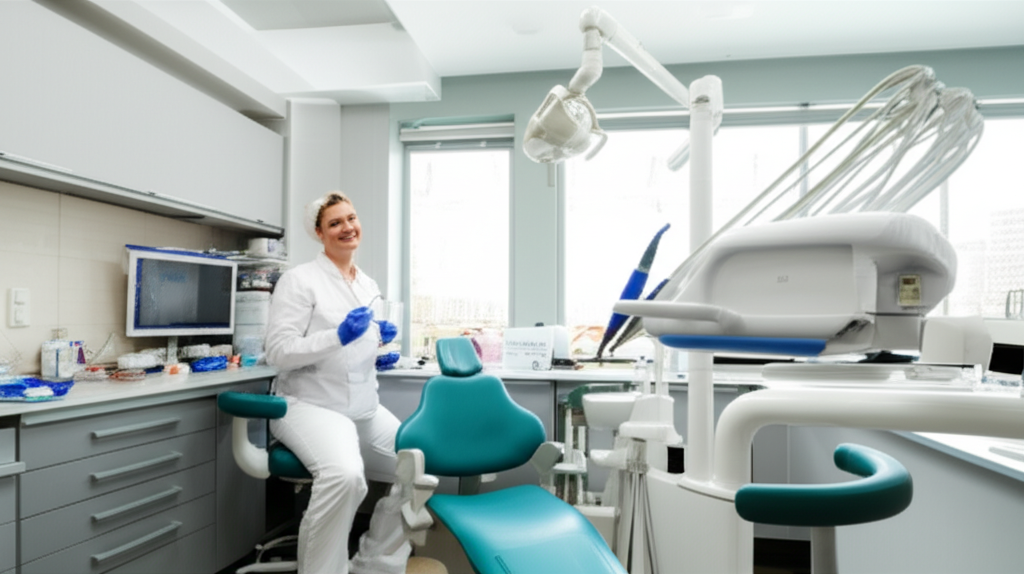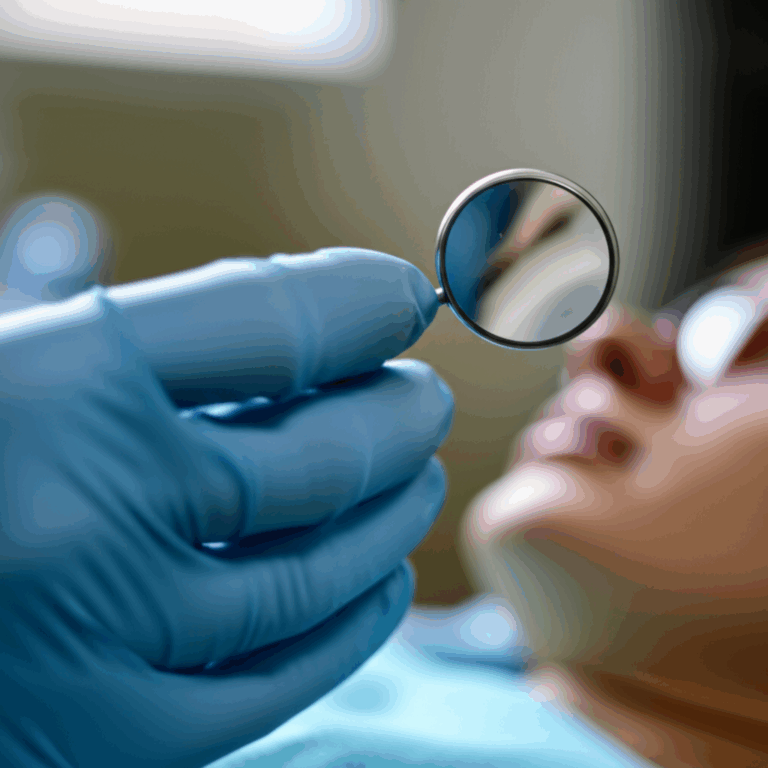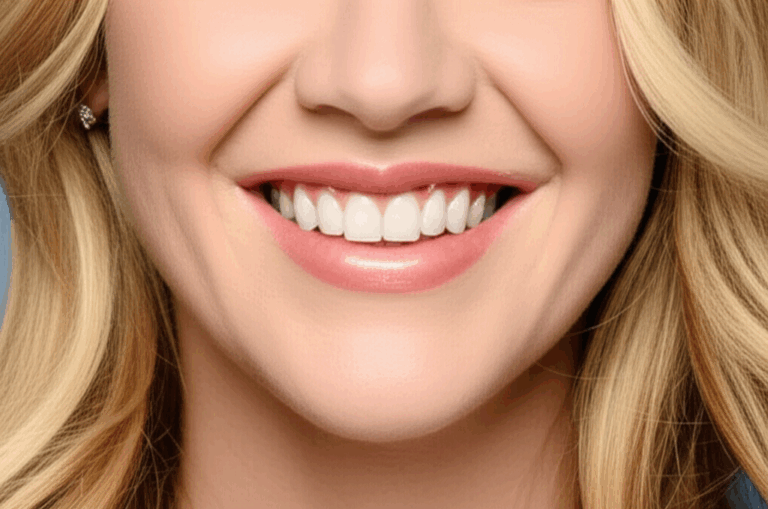
How to Work as a Dentist in Ireland: Your Essential Guide
Are you trying to figure out how to work as a dentist in Ireland? You’re not the only one. Many EU and non-EU dentists want clear answers about qualification checks, registering with the Dental Council of Ireland, work permits, jobs, and living in a new place. Your questions are normal. This guide breaks it all down simply, then walks you through your steps so you can move ahead with confidence.
In short, you need to register with the Dental Council of Ireland, get the right visa if you’re from outside the EU, and find a job that suits you. Along the way, you’ll also sort out things like your PPS number, joining a professional group, and getting indemnity insurance. It does sound like a lot, but you can do it.
IN THIS ARTICLE
- Understanding the Landscape: Dentistry in Ireland
- Qualification Checks & Registering with the Dental Council of Ireland (DCI)
- Visa & Immigration Rules for Dentists in Ireland
- Finding a Dentist Job in Ireland
- Pay, Cost of Living & Money Matters
- Professional Growth & Practice in Ireland
- Moving to Ireland: Simple Advice
- Frequently Asked Questions (FAQs)
- Conclusion: Your Journey to Becoming a Dentist in Ireland
1. Understanding the Landscape: Dentistry in Ireland
The Irish dental world has both public care and a big private practice side. You can work in either or switch between them as you go.
1.1 Overview of the Irish Dental Sector (Public vs. Private)
- Public Dental Service (HSE)
- The Health Service Executive (HSE) provides public dental care. Dentists focus on children, special adult groups, and community service. You’ll work in teams with set hours and can expect regular workdays.
- Private Dental Practice
- Private practices offer all sorts of dental work including specialties like orthodontics, endodontics, gum care, false teeth, surgery, and kid’s dentistry. Many dentists start as associates, then move into owning a share or running their own clinics. Private work brings more choice and income changes, and you’ll also need to think about the business side.
Both systems use national standards and laws. The Dental Council of Ireland (DCI) sets the professional rules. The Irish Dental Association (IDA) gives support, training, and job listings.
1.2 Demand for Dentists in Ireland
Ireland needs more dentists. Country areas like the Mid-West, North-West, and South-East have more shortages than the big cities. The HSE often hires for public jobs. Cities like Dublin, Cork, Galway, Limerick, and Waterford have openings in both private and public clinics, for dental associates, cover workers, and dental specialists. There’s steady need for all sorts of dental experts.
Recruitment agencies say there are always jobs open. Surveys from the IDA say many clinics have a tough time hiring dentists and helpers like dental nurses, hygienists, and techs. This can make it easier for foreign dentists who want to move.
2. Qualification Checks & Registering with the Dental Council of Ireland (DCI)
You have to register to work as a dentist in Ireland. The steps you take depend on where you trained.
2.1 For EU/EEA Qualified Dentists
If your main dental degree is from the EU or EEA and fits EU rules, you usually get automatic approval. You’ll still fill out the DCI paperwork and send in your ID, degree, and other papers.
- What you’ll usually need
- Passport or ID
- Original diploma with certified translations if needed
- Proof of good standing from where you work now
- Any extra training or specialist certificates
- Proof you speak good English (if needed)
- Application form and fee (check the DCI site)
How long it takes depends on how complete your documents are. Normal EU applications finish in a few months for most people.
About the UK after Brexit
- UK dental degrees aren’t automatically accepted anymore. The DCI looks at them one by one. UK dentists must register with the DCI. GDC registration only lets you work in the UK, not Ireland.
2.2 For Non‑EU/EEA Qualified Dentists
If you trained outside the EU/EEA, you’ll follow a check process. If the DCI doesn’t know your main degree, you’ll probably have to pass an extra test, called a Clinical Aptitude Test, to show your skill and knowledge.
- The process can include
- Sending your degree and transcripts to the DCI
- Showing your clinical and work experience
- Proving your English (IELTS Academic or OET Dentistry)
- Doing a clinical exam if you qualify
- Getting registered after you pass everything
How long does it take?
- Most people say about 6–12 months once you finish the exam. Exams, preparation, documents, and translation can add more time. Plan for this.
2.3 Registration Rules for All Applicants
No matter where you trained, the DCI asks for:
- Certificate of Good Standing (from where you last worked and anywhere else you worked as a dentist)
- English language proof (IELTS Academic or OET Dentistry)
- Professional Indemnity Insurance (groups like Dental Protection and MPS can help)
- Garda or police checks if needed
- Promise to keep learning (CPD), usually 50 hours over five years with some hours on safety and ethics
Some extra notes:
- Temporary dentist registration is rare. You need to get full registration.
- QQI doesn’t register dentists. The DCI is the only body for this.
3. Visa & Immigration Rules for Dentists in Ireland
Where you are from decides your right to live and work in Ireland. Always check the latest rules with the Department of Justice and Department of Enterprise, Trade and Employment. Citizens Information has simple summaries too.
3.1 For EU/EEA/Swiss Citizens
You can live and work in Ireland. You don’t need a work permit, but you still need DCI registration to be a dentist.
Things to do
- Get a Personal Public Service (PPS) Number when you get here
- Sign up with Revenue for tax reasons
- Open an Irish bank account
- Get health insurance if you want private cover
3.2 For Non‑EU/EEA Citizens
Most non-EU/EEA dentists need a work permit and sometimes a special visa.
- Critical Skills Employment Permit
- Dentists are seen as highly skilled. If your job pays enough and ticks the boxes, you can apply for this permit with DETE. You can stay longer and bring family later.
- General Employment Permit
- If your job doesn’t count as ‘critical skills,’ you may get this permit. It can take longer and rules for family coming to join you are different.
- Long-Stay D Visa
- If you need a visa to enter Ireland, you fill out this application after or with your permit one. Once you arrive you register with the immigration office.
- Family Reunification
- Spouses and kids can often come but rules depend on your permit and salary.
Good tips
- Ireland doesn’t use the “EU Blue Card.” Use the Critical Skills or General Employment Permit routes.
- Your job offer and role must fit your permit perfectly.
- Keep proof of DCI registration for all permit and visa paperwork.
3.3 After Brexit: UK Dentists
UK citizens can still live and work in Ireland thanks to the Common Travel Area. You don’t need a visa or extra work permit. You must register with the DCI, and the DCI checks your UK degree itself.
4. Finding a Dentist Job in Ireland
Once you’re registered (or close), you’ll need the right job. The job scene is always busy, in both general and speciality work.
4.1 Best Job Search Sites & Tips
- Online job boards
- Sites like Indeed.ie and LinkedIn have lots of dentist jobs.
- Dental recruitment agencies
- Agencies like Dental People and Dental Recruitment Ireland hire for clinics all over the country.
- Professional groups
- The Irish Dental Association (IDA) careers page lists jobs.
- HSE careers
- The HSE website shows public health dental roles.
- Networking
- Attend IDA events, meet practice owners, and chat with others in the field. Many jobs start with a simple conversation.
4.2 Types of Dental Jobs
- Dental Associate
- Usual entry in private clinics. Sometimes self-employed or employee. Pay may be salary or based on commission.
- Locum Dentist
- Short-term cover work. It can help you learn about different clinics and may turn into a long-term job.
- Public Health Dentist
- Paid by the HSE. Community focus, more regular hours and team work.
- Dental Specialist
- Jobs for orthodontists, endodontists, gum dentists, false teeth experts, oral surgeons, and children’s dentists are in demand. Need recognized specialist training.
- Practice Ownership
- Many aim to own or start a clinic later. You’ll need planning, money advice, and a business plan.
4.3 How to Make Your CV & Prepare for Interviews
- CV tips
- Keep it clear, 2–3 pages. List your training, DCI registration, CPD, and skills. Show if you use new tech like digital dentistry. Mention your teamwork with dental helpers.
- Interview prep
- Be ready to talk about patient stories, teamwork, and handling tough spots. Know Irish dental rules, consent, and patient care standards.
- References and background
- Employers may ask for two work references, proof of indemnity, and Garda check.
5. Pay, Cost of Living & Money Matters
Here’s what to expect for pay and the cost of living before you decide. These are ballpark numbers and do change.
5.1 Dentist Pay in Ireland
- General Dentist
- Most make €60,000–€120,000 a year before taxes. Some make more with longer hours or lots of patients.
- Specialist Dentist
- Most make €100,000–€250,000 or even more. Orthodontists and oral surgeons often earn at the top of this range.
- New Dentist or Just Qualified
- Expect €45,000–€70,000 in the early years. Some private jobs are commission only, not salary.
What changes pay?
- Experience, speed, work type, location, and private vs. public roles. Some rural jobs pay better to attract staff. Private pay can go up or down with the seasons.
5.2 Cost of Living in Ireland
- Rent
- Dublin city one-bedroom flats go for €1,800–€2,500+ per month. Smaller cities cost €1,000–€1,500.
- Bills
- Plan for about €150–€250 monthly for things like heat, power, trash, and internet.
- Getting around
- Buses and trains serve most cities, but many dentists drive for work.
- Area changes
- Dublin is most pricey. Rural areas are cheaper. Check job pay against these costs.
5.3 Irish Taxes & Your PPS Number
You’ll pay income tax, Universal Social Charge (USC), and Pay Related Social Insurance (PRSI). The Revenue office manages your taxes. You’ll need a PPS Number for your pay and taxes. For clear info, visit Citizens Information. If you plan to run your own clinic, a dental accountant can save you a headache.
6. Professional Growth & Practice in Ireland
Learning never stops. CPD makes sure you stay skilled and you keep your DCI registration.
6.1 Continuing Professional Development (CPD)
The DCI asks dentists to do CPD — usually 50 hours every five years with some hours on ethics and patient safety. You can get courses from the IDA, RCSI, Trinity College Dublin, Cork Dental School, or other private groups. Pick courses that match your goals.
6.2 Indemnity & Insurance
You must have professional indemnity insurance. Companies like Dental Protection and the Medical Protection Society provide insurance and advice. Students and new grads can get special schemes.
6.3 Ethics & Rules
Follow the DCI’s Code of Practice. This covers things like consent, privacy, advertising, keeping records, cleanliness, and good ethics. Stay updated on dental law and rules in Ireland. If you run or own a clinic, know the staff laws too.
6.4 Join Professional Groups
Join the Irish Dental Association for training, support, and career help. Think about joining expert groups or college networks to find mentors and stay on top of dental news.
7. Moving to Ireland: Simple Advice
Moving is easier with good planning. Here’s how to settle in without stress.
7.1 Finding a Place to Live
- Start early. Dublin is busy. Cork, Galway, Limerick, and Waterford are also competitive.
- Daft.ie and local estate agents show flats and houses.
- If you want to own a clinic, think about living close for easy travel to work.
7.2 Getting Healthcare
- Public care
- The HSE runs Ireland’s public health. Some patients get certain dental care with a medical card under specific plans.
- Private health insurance
- Many professionals get their own health insurance for fast care. Policies are different so compare before you pick.
7.3 Bank and Money Setup
- Open an account with your ID and proof of address. Some banks let you do part ahead of time.
- Sign up with Revenue online. Set up tax credits if you’re an employee. If you’ll be self-employed, register for self-assessment.
7.4 Getting Around
- Cities have buses and trains. Countryside areas don’t always.
- You can use your current driving licence for a limited time. You might need to swap it — check the National Driver Licence Service.
7.5 Settling into Irish Life
Ireland is friendly. People like politeness, jokes, and community. Join clubs, professional groups, or help at local health events. Chat and small talk matter. Patients value kindness and clear information about their care.
8. Frequently Asked Questions (FAQs)
8.1 Can I work as a dentist in Ireland with a US or Canadian degree?
Yes — if you register with the DCI. The DCI checks your degree. If it’s not on their direct list, you’ll need to pass an exam. If you’re not an EU/EEA or UK citizen, get the right immigration papers too.
8.2 How long does the DCI registration process take?
It depends. Many EU grads finish in a few months if all paperwork is ready. Non-EU folks often take longer due to checks and exams. Always allow some extra months for delays.
8.3 What are the English language requirements?
The DCI accepts IELTS Academic or OET Dentistry with good scores. If you trained or worked long-term in English, you might get a pass on this. The DCI decides.
8.4 Is there a dentist shortage in Ireland?
Yes, especially outside big cities. The HSE often hires for public health jobs, and private clinics struggle to fill roles. This means more chances for foreign dentists who register.
8.5 What is the average salary for a new dentist in Ireland?
Most new dentists earn €45,000–€70,000. Some jobs have a basic wage plus a cut of your billings. In private care, pay depends on patients and hours.
9. Your Journey to Becoming a Dentist in Ireland
Here’s what matters most, step by step. You can do this.
- Know the system
- There’s public and private work. Demand is strong across much of the country, especially for certain skills.
- Register with the DCI
- EU/EEA applicants follow EU rules. Non-EU/EEA normally sit an exam. Collect your paperwork early and keep things together.
- Get the right visa
- If you’re EU/EEA or UK, you’re ok — no permit needed. Non-EU/EEA usually need a Critical Skills or General Employment Permit, and often a long-stay visa too.
- Find your job
- Use Indeed, LinkedIn, IDA jobs page, recruitment agencies, and HSE jobs. Update your CV for Ireland. Show your DCI registration, learning, and clinical strengths.
- Plan your money
- Check how pay matches up with living costs. Learn about Irish taxes. Get a PPS number and open a bank account.
- Keep learning and stay ethical
- Always have indemnity insurance. Follow the DCI code. Join IDA for updates and networking.
- Settle in well
- Fix your home, transport, and healthcare. Get to know local dental teams. Patients notice when their dentist works well with dental nurses, hygienists, and techs.
Action steps for this week:
A note on dental labs and technology
Irish clinics use digital dentistry more and more. You’ll order work from modern labs, like crown and bridge labs or 3d dental labs, and you’ll work with new materials and digital scans. You’ll talk to lab workers about shades, bites, and patient comfort to keep cases running smoothly.
Encouragement
It seems hard at first, but if you follow each step, you’ll get through. Ask for help when needed. Ireland welcomes skilled, kind dentists. Your team and your future patients will be glad you came.
Helpful notes
- Always double-check with official sites: Dental Council of Ireland, Department of Enterprise, Trade and Employment, Department of Justice, Citizens Information, and Revenue. Rules and fees can change.
- GDC registration allows you to work in the UK, not Ireland.
- Ireland doesn’t do the EU Blue Card. For most, the Critical Skills or General Employment Permit is what you need.
Key words
- Dental Council of Ireland (DCI): Dentists’ regulator in Ireland
- Irish Dental Association (IDA): Main dentist group for help and training
- HSE: Runs public health and public dentist jobs
- PPS Number: Your number for tax and social services
- CPD: Ongoing learning for keeping your registration
- Professional Indemnity Insurance: Must-have cover to protect you in practice
If you remember just one thing: Register with the DCI first. Secure your visa or work rights. Then find a job that fits your goals. Do those, and you’re on your way.








